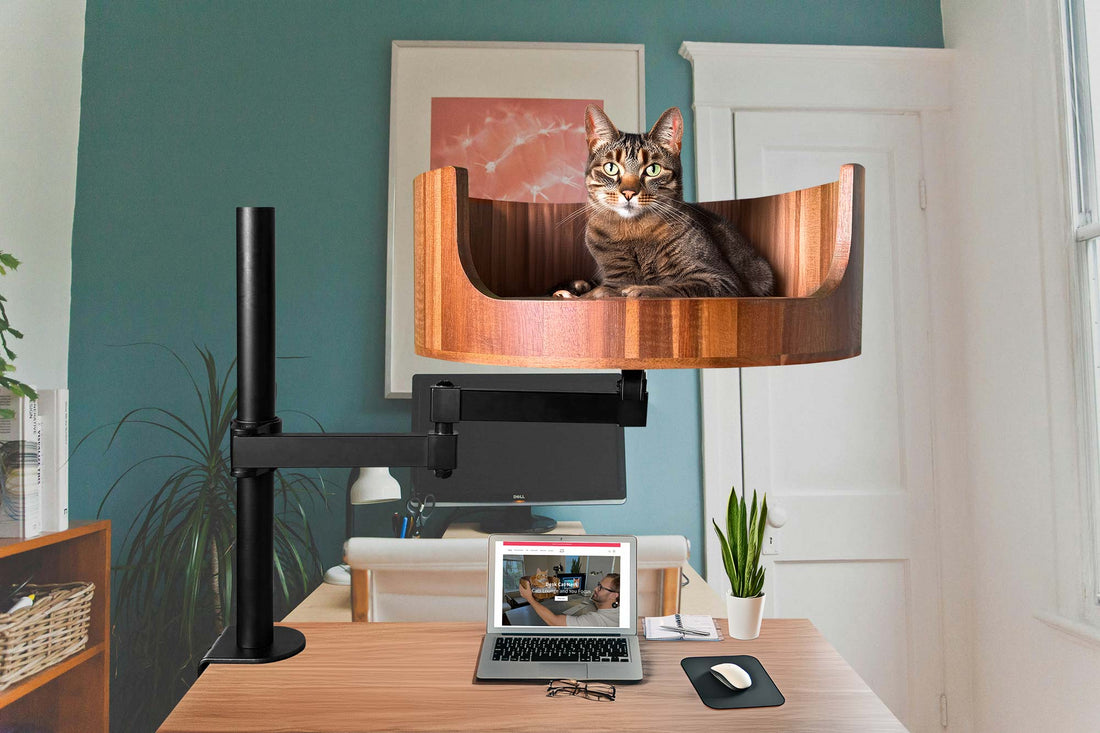
My Is My Cat Sneezing? Understanding Feline Allergies
Share
If you've noticed your beloved feline companion sneezing more often than usual, you may be wondering if your cat is experiencing allergies. Just like humans, cats can develop allergies to various substances in their environment, leading to symptoms such as sneezing, itching, and even respiratory issues. Understanding feline allergies is crucial for providing the best possible care for your furry friend. In this article, we will explore the common causes of feline allergies, how to recognize the symptoms, and what steps you can take to help alleviate your cat's discomfort.
From pollen and dust mites to certain foods and medications, cats can be sensitive to a wide range of allergens. Identifying the specific trigger for your cat's allergies can sometimes be a challenging process, but with patience and observation, you can help your feline friend feel better. We will also discuss the importance of consulting with a veterinarian to determine the best course of action for managing your cat's allergies, whether it be through medication, dietary changes, or environmental modifications. By educating yourself on feline allergies and taking proactive steps to address your cat's symptoms, you can help ensure that your furry friend enjoys a happy and healthy life.
1. Sneezing in cats can be a sign of allergies, just like in humans.
2. Common allergens for cats include dust, pollen, certain foods, and even certain types of litter.
3. It's important to monitor your cat's symptoms and behaviors for signs of allergies, such as frequent sneezing, itching, or redness around the eyes.
4. A visit to the vet can help determine the underlying cause of your cat's allergies and provide treatment options.
5. Making small changes in your cat's environment, such as using hypoallergenic products, can help alleviate their allergies and improve their quality of life.
What Causes Feline Allergies?
Feline allergies can be caused by a variety of factors such as pollen, dust mites, mold, and certain foods. Cats can also be allergic to certain medications, chemicals, or even grooming products. Allergies occur when a cat's immune system mistakenly identifies a harmless substance as a threat and overreacts, causing symptoms such as sneezing, itching, watery eyes, and skin rashes. Understanding the root cause of your cat's allergies is essential in providing proper treatment and relief.
Common Symptoms of Feline Allergies
Some common symptoms of feline allergies include sneezing, coughing, wheezing, itching, excessive grooming, watery eyes, runny nose, and skin rashes. It is important to note that these symptoms can also be indicative of other health issues, so consulting with a veterinarian is crucial for an accurate diagnosis. Keeping a close eye on your cat's behavior and any changes in their physical appearance can help you identify potential allergy triggers and seek appropriate treatment.
Treatment Options for Feline Allergies
Treatment for feline allergies may involve a combination of medication, environmental changes, and dietary adjustments. Antihistamines, corticosteroids, and allergy shots are commonly prescribed by veterinarians to help alleviate allergy symptoms. In some cases, identifying and eliminating the allergen from your cat's environment can provide long-term relief. This may include switching to hypoallergenic grooming products, using air purifiers, and creating a dust-free living space for your furry friend.
Preventing Feline Allergies
While some allergies are unavoidable, there are steps you can take to minimize your cat's exposure to potential triggers. Regular grooming, vacuuming, and dusting can help reduce the presence of allergens in your home. Additionally, providing a balanced diet and ensuring your cat stays hydrated can strengthen their immune system and decrease the likelihood of developing allergies. Consulting with your veterinarian for preventive care recommendations tailored to your cat's specific needs is always a wise choice.
Frequently Asked Questions
Why is my cat sneezing?
There are several reasons why your cat may be sneezing, including allergies, upper respiratory infections, nasal blockages, or foreign objects in their nasal passages. It's best to consult with your veterinarian to determine the cause of your cat's sneezing.
Will a Desk Cat Nest help alleviate my cat's sneezing?
While a Desk Cat Nest can provide a cozy and comfortable space for your cat to rest, it may not directly address the underlying cause of your cat's sneezing. However, a comfortable and stress-free environment can support your cat's overall health and well-being.
Should I take my sneezing cat to the vet?
If your cat is sneezing frequently or showing other concerning symptoms such as nasal discharge, coughing, or lethargy, it's best to take them to the vet for a proper evaluation. Your vet can determine the cause of your cat's sneezing and recommend appropriate treatment.
Can allergies be the reason for my cat's sneezing?
Yes, allergies can be a common cause of sneezing in cats. Allergies to pollen, dust, mold, or certain foods can trigger sneezing and other respiratory symptoms in cats. Your vet can help identify the specific allergen affecting your cat and recommend appropriate management strategies.
In conclusion, the Desk Cat Bed is a valuable choice for helping with your cat's sneezing issue. By providing a cozy and elevated sleeping space for your feline friend, the Desk Cat Bed helps to keep them away from dust and allergens that may be causing their sneezing. This unique design also promotes better air circulation, reducing the chances of your cat inhaling irritants. Overall, the Desk Cat Bed is a wise investment in your cat's health and well-being, providing a comfortable and safe sleeping environment that can help alleviate their sneezing symptoms.



















































